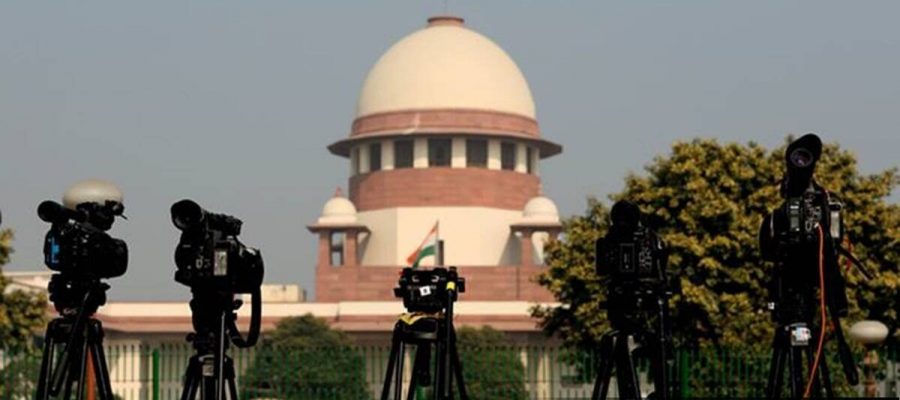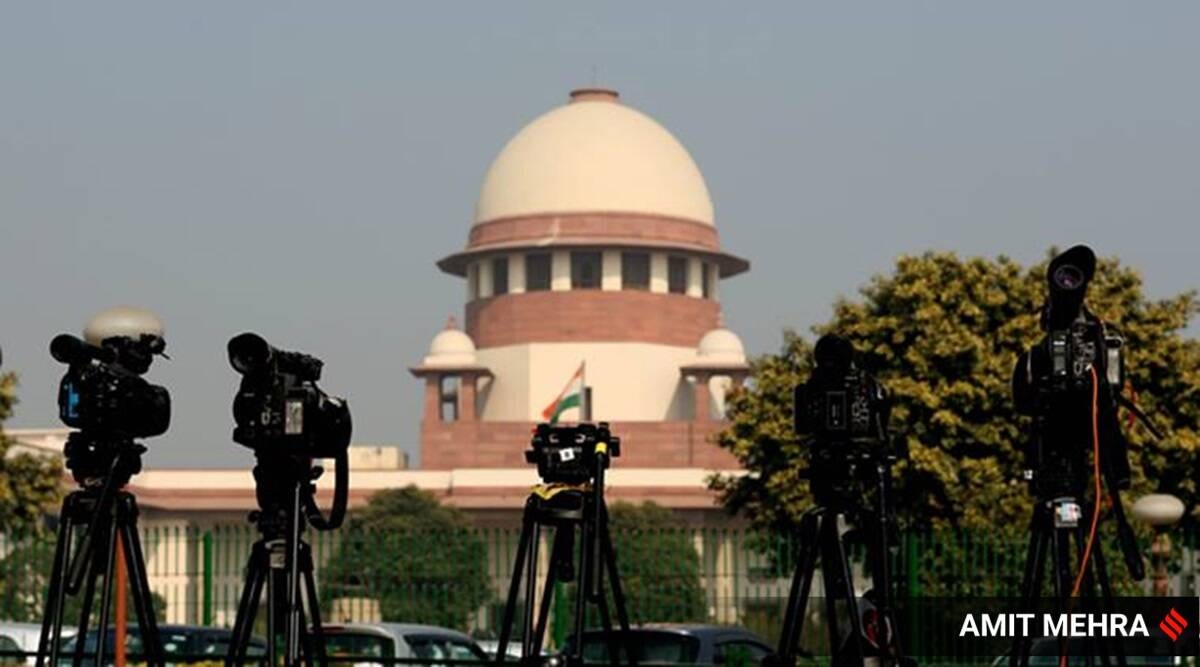An apex court vacation bench of Justices Vineet Saran and B R Gavai said High Courts should consider the possibility of execution of their directions, and they may not be passed if they cannot be implemented.
THE SUPREME Court Friday stayed the May 17 order of the Allahabad High Court asking the UP government to consider a series of Covid measures after the state contended that most of the directions were “unrealistic” and “incapable of being performed in the timelines granted”.
An apex court vacation bench of Justices Vineet Saran and B R Gavai said High Courts should consider the possibility of execution of their directions, and they may not be passed if they cannot be implemented. “The doctrine of impossibility is equally applicable to courts,” the bench said.
When the UP government pointed to suggestions in the May 17 order on vaccine manufacture, the bench stated that when the Supreme Court hears matters with national and transnational ramifications, High Courts should avoid passing orders on them.
However, the bench rejected a prayer to direct that Covid-related matters in various High Courts be heard by a bench comprising the respective Chief Justices. “We will not pass sweeping orders…we cannot demoralise the High Courts. We have balanced our order,” the bench said.
On Monday, while passing its order in the case of a Covid patient being reported “missing” from Meerut District Hospital by relatives as his body was disposed of by authorities as unidentified, the High Court had made scathing observations. It said the “entire medical system” of UP “pertaining to the smaller cities and villages can only be taken to be like a famous Hindi saying, Ram Bharose (at the mercy of God)”.
The High Court had asked the state to improve facilities at medical colleges in Prayagraj, Agra, Meerut, Kanpur and Gorakhpur within four months. It had also asked the state to provide at least 20 ambulances to B- and C-Grade towns, two ambulances with ICU facilities for every village, oxygen facilities at all nursing home beds, an oxygen plant at nursing homes with more than 30 beds, and more ICU beds at all nursing homes and hospitals.
Appearing for the state, Solicitor General Tushar Mehta referred to the High Court’s “Ram Bharose” comments and contended that such observations demoralise doctors and paramedical staff who are overworked.
The bench, while appreciating the efforts of High Courts to take up Covid issues, said: “…however, while dealing with such matters and the concerns the Courts may have for patients and general public and anxiety of Courts to give utmost relief to those suffering, sometimes, unwittingly the Courts overstep and pass certain orders that are not capable of being implemented”.
Referring to the Allahabad High Court order, the bench said that “in our view this order may be well meaning and passed in anxiety”. “But since these directions cannot be compiled with, all such directions should be treated as observations of the court and not as directions,” it said.
In its plea, the UP government also referred to the High Court’s earlier observation on May 4 that deaths in hospitals due to lack of oxygen amounts to “genocide”. It said the High Court has been passing directions relying upon viral news on social media.
The May 17 order had also called upon the state to look into the viability of equipping all nursing homes with oxygen facility on every bed, and compulsorily requiring health facilities with more than 20 beds to have at least 40 per cent beds as ICUs of which 25 per cent should have ventilators, 25 per cent High Flow Nasal Cannula and 50 per cent BiPAP machines.
Referring to the High Court’s directions, the UP government said there are almost one lakh villages and 75 districts in the state and the order mandated an “unrealistic target” of over 2,20,000 ambulances having ICU facility and manpower within a month.
The High Court had also directed that big business houses, which take various advantages under taxation laws by donating to religious organisations, may be asked to divert funds for vaccines. It had said that “big medical companies which are working in the country may not have their own vaccines but they may take the formula from just any of the vaccine manufacturers in the world and start producing the vaccine”.
The state said the order amounted to “judicial overreach”. It pointed out that while hearing a PIL earlier, the High Court had “imposed a lockdown in 5 cities”, which was stayed by the Supreme Court on April 20.
The UP government said the “adverse remarks…have been made without taking into account any relevant data, financial availability, actual needs and without considering the facts of bio safety, bio wasting”.
It said that “making adverse remarks without any cogent data, which is being reported by the national and international media, destroys the morale of the entire system and has an adverse impact on the state administration whose ministers, officials and health workers are working night and day to ensure that the pandemic is contained and medical facilities are made available to all”.
On May 6, while hearing a challenge to the Madras High Court’s observations that Election Commission officials “should be put on murder charges” for “not stopping political parties” from violating Covid protocols during campaign rallies, the Supeme Court had described the remarks as “harsh,” and “inappropriate”. It underlined the need “for judges to exercise caution in off-the-cuff remarks in open court”.
Source: Read Full Article


